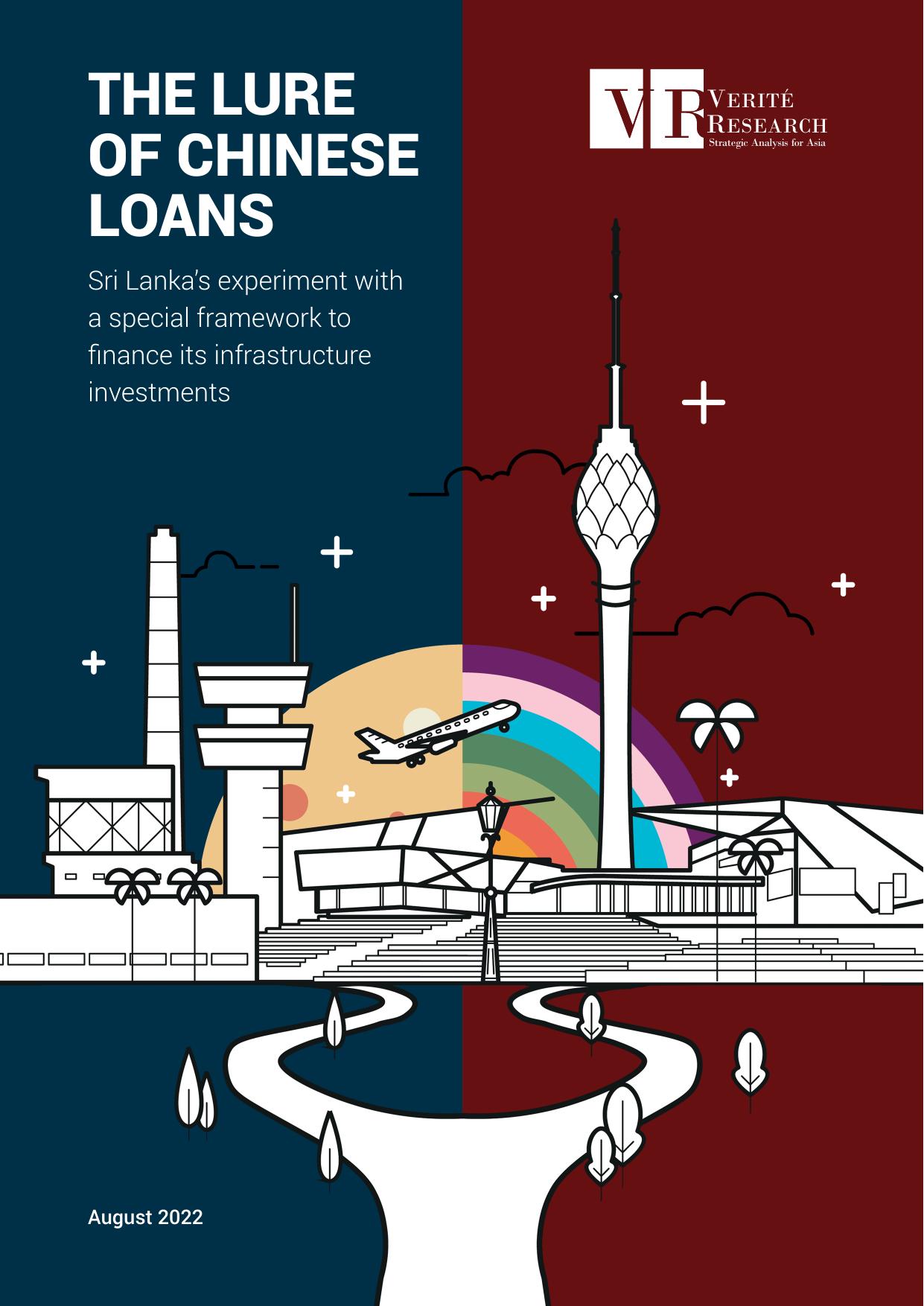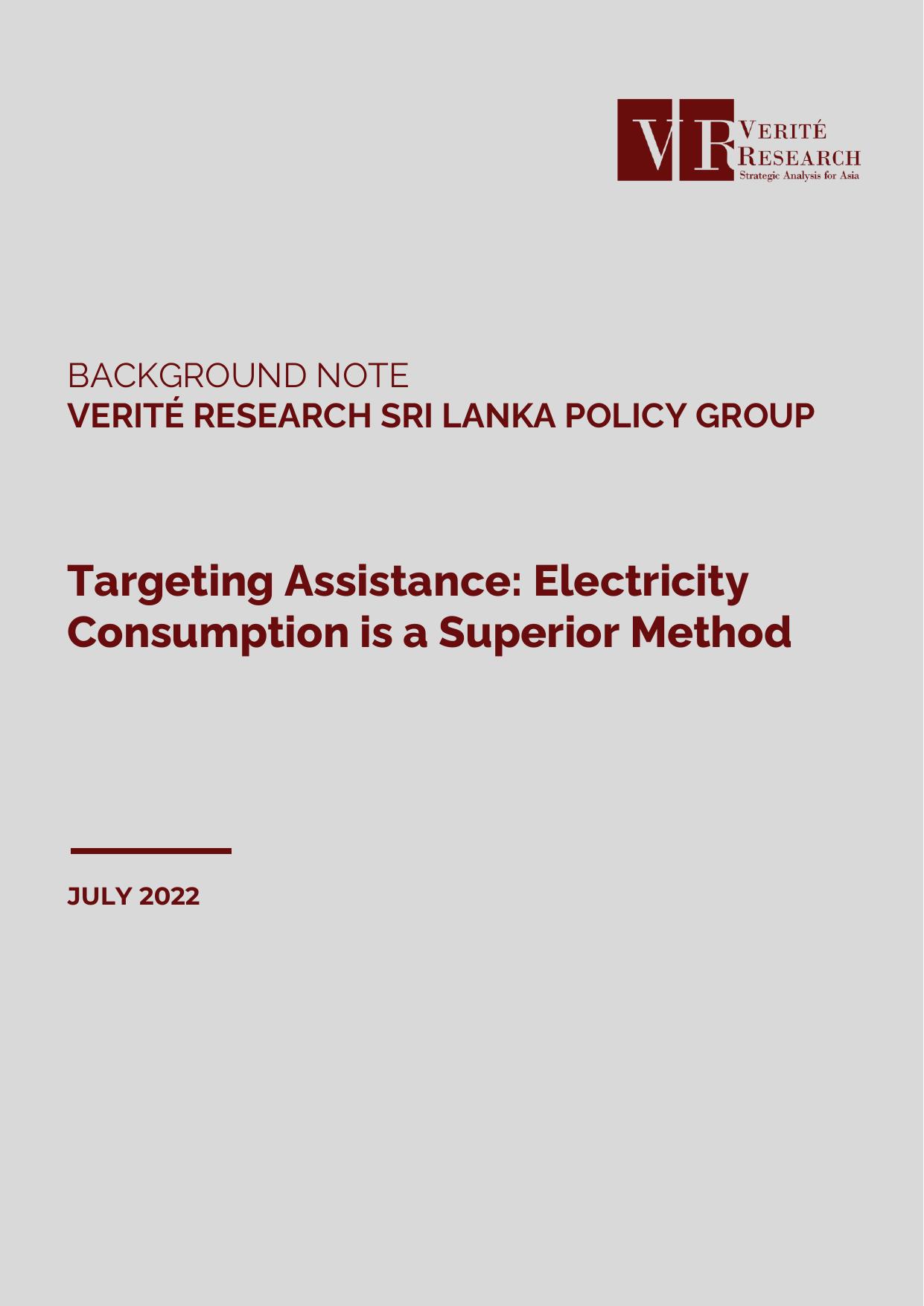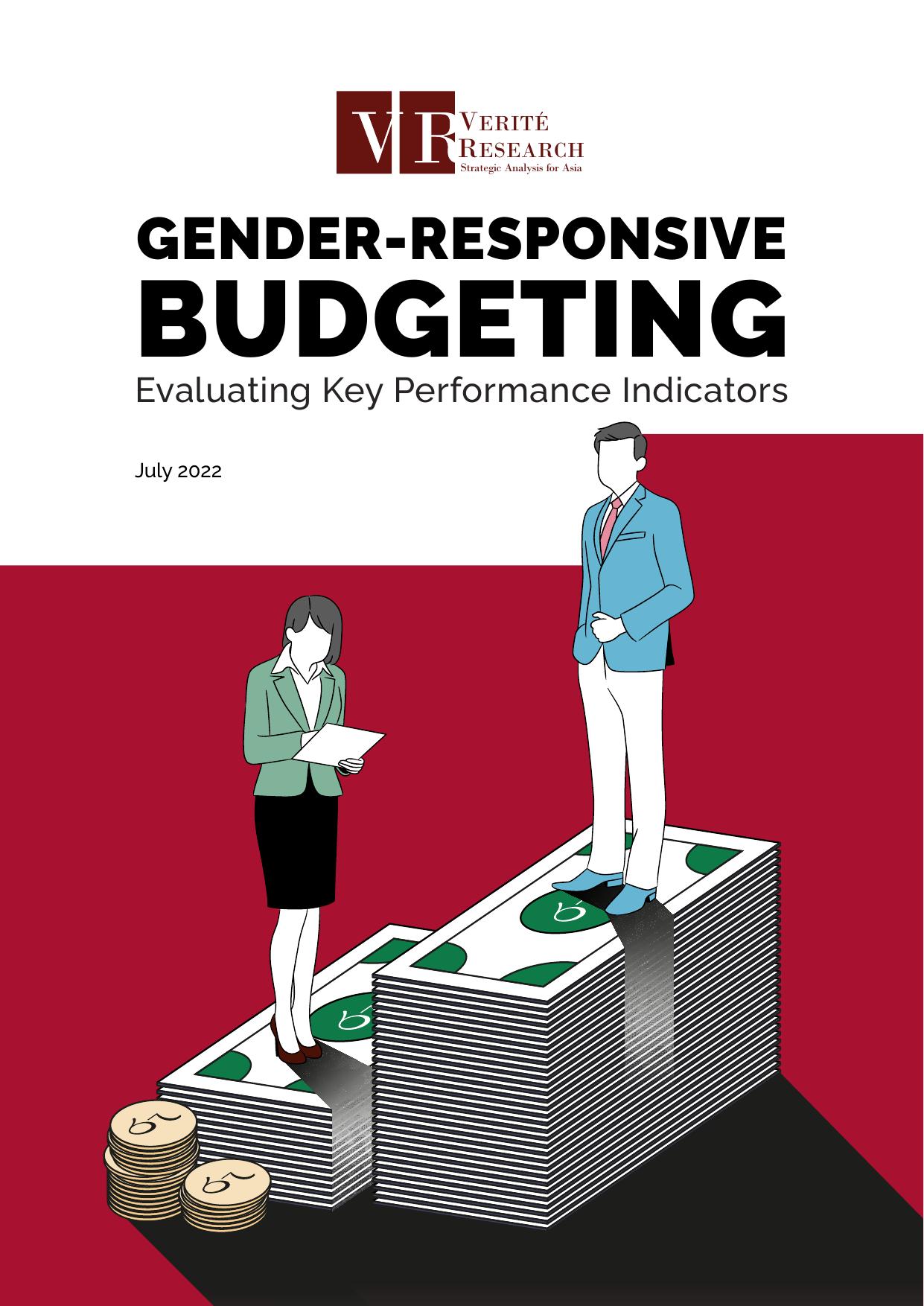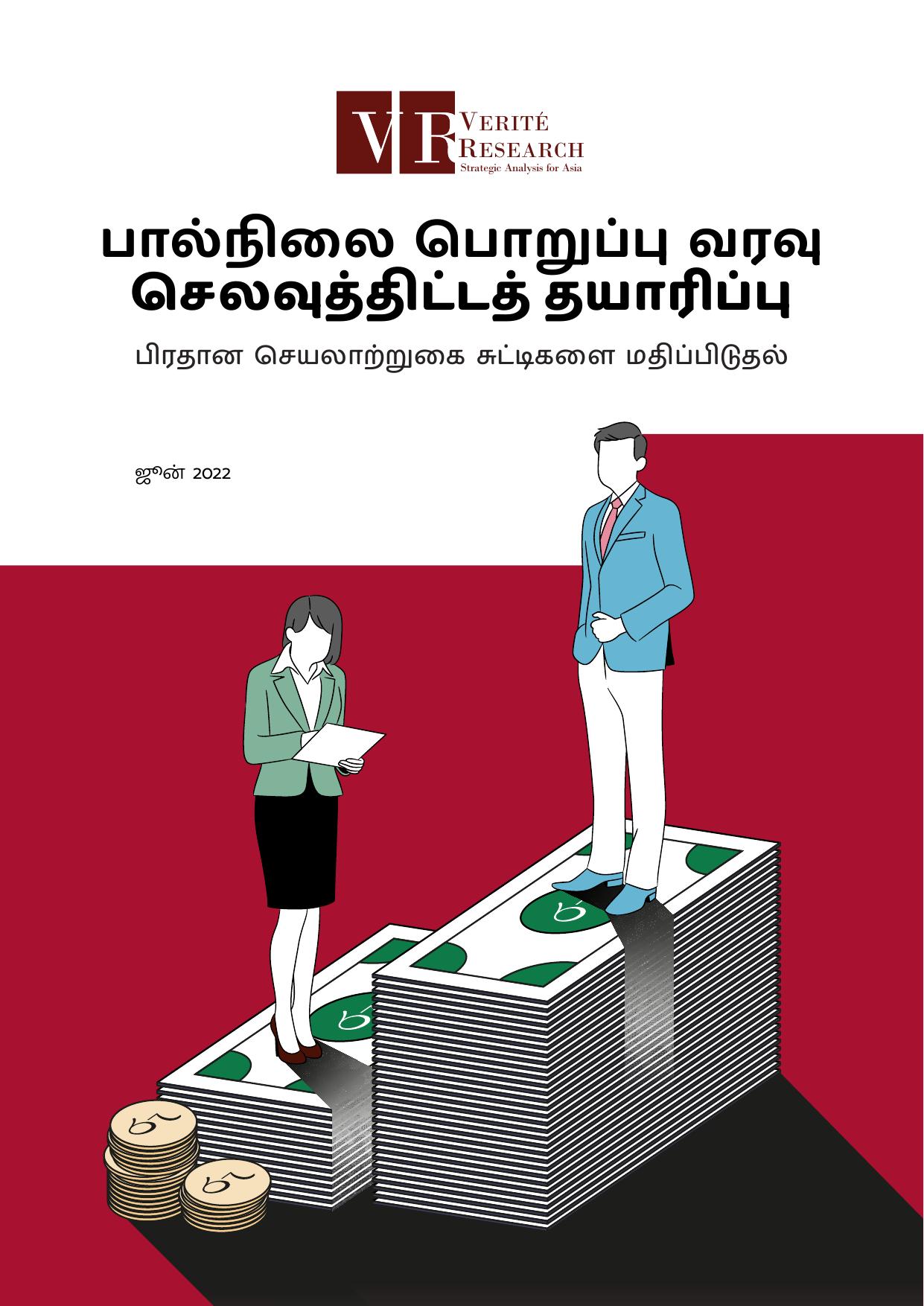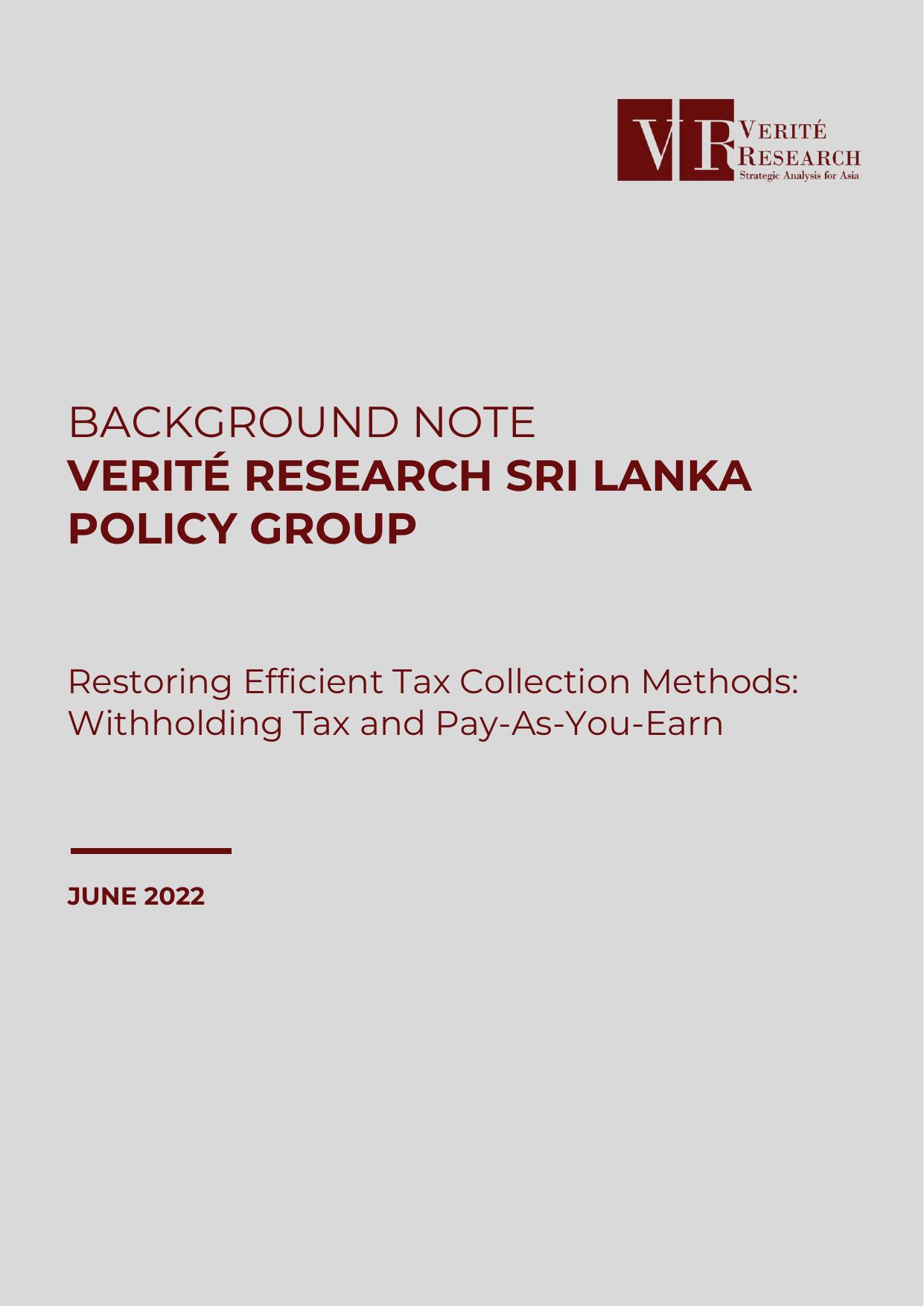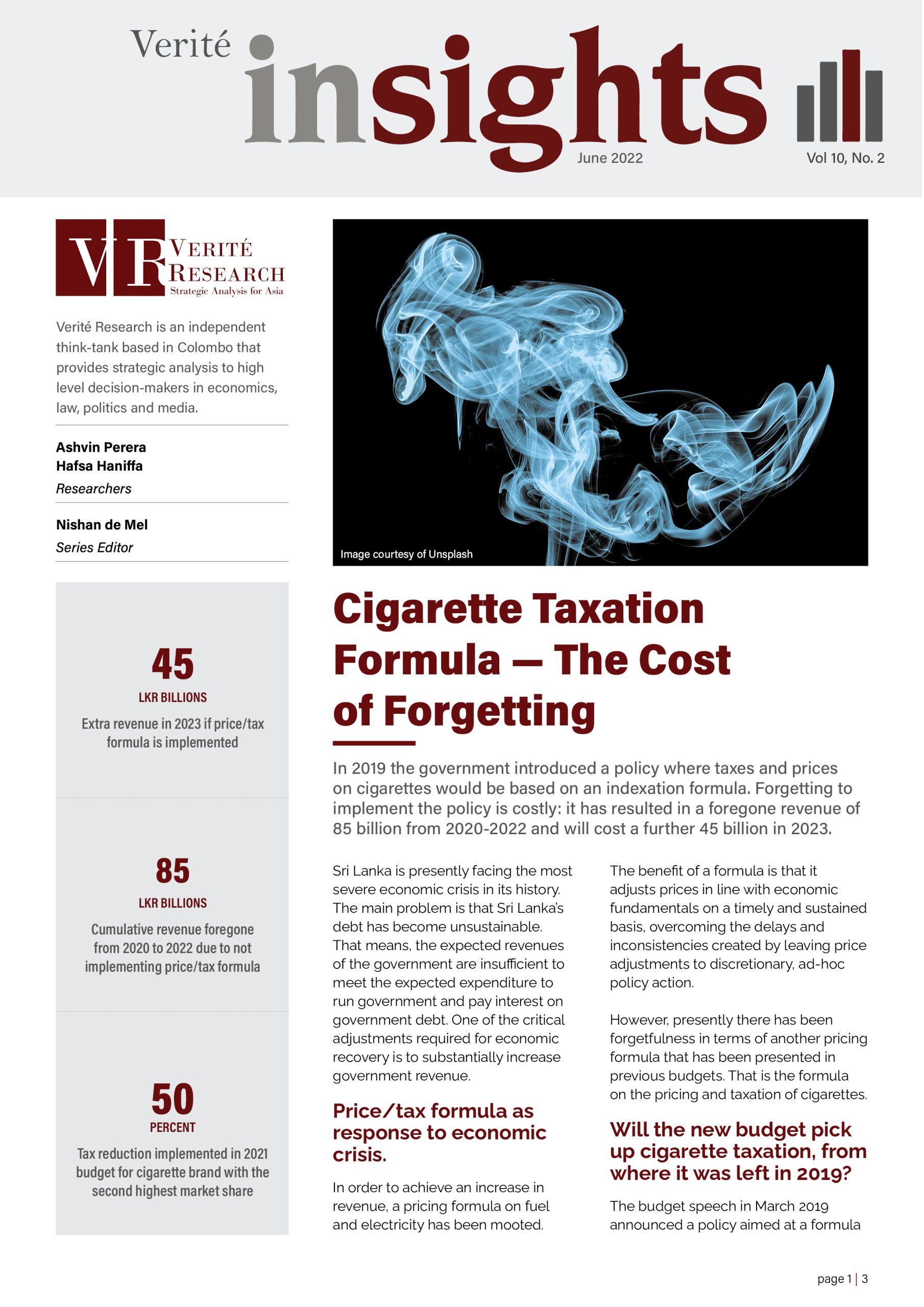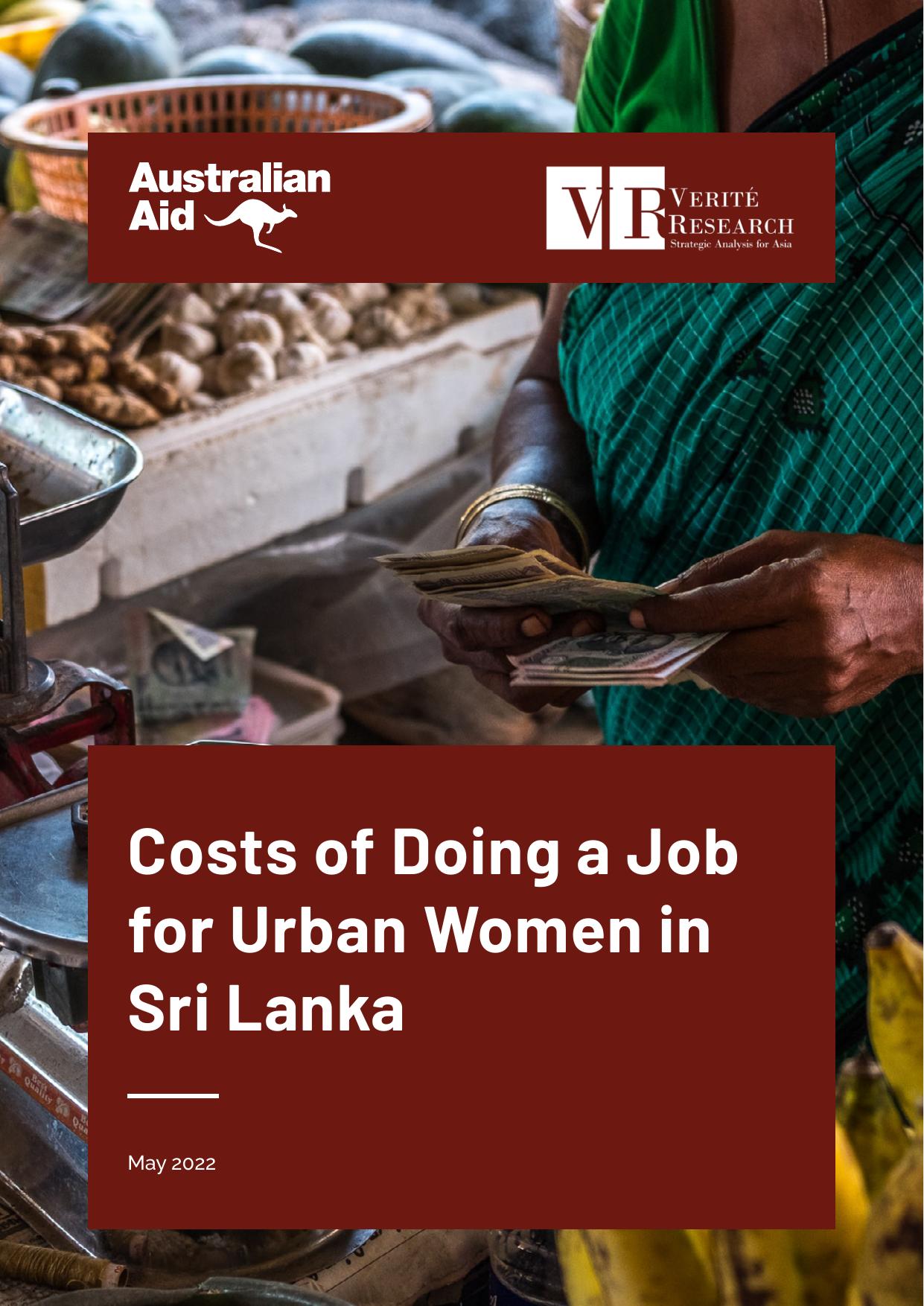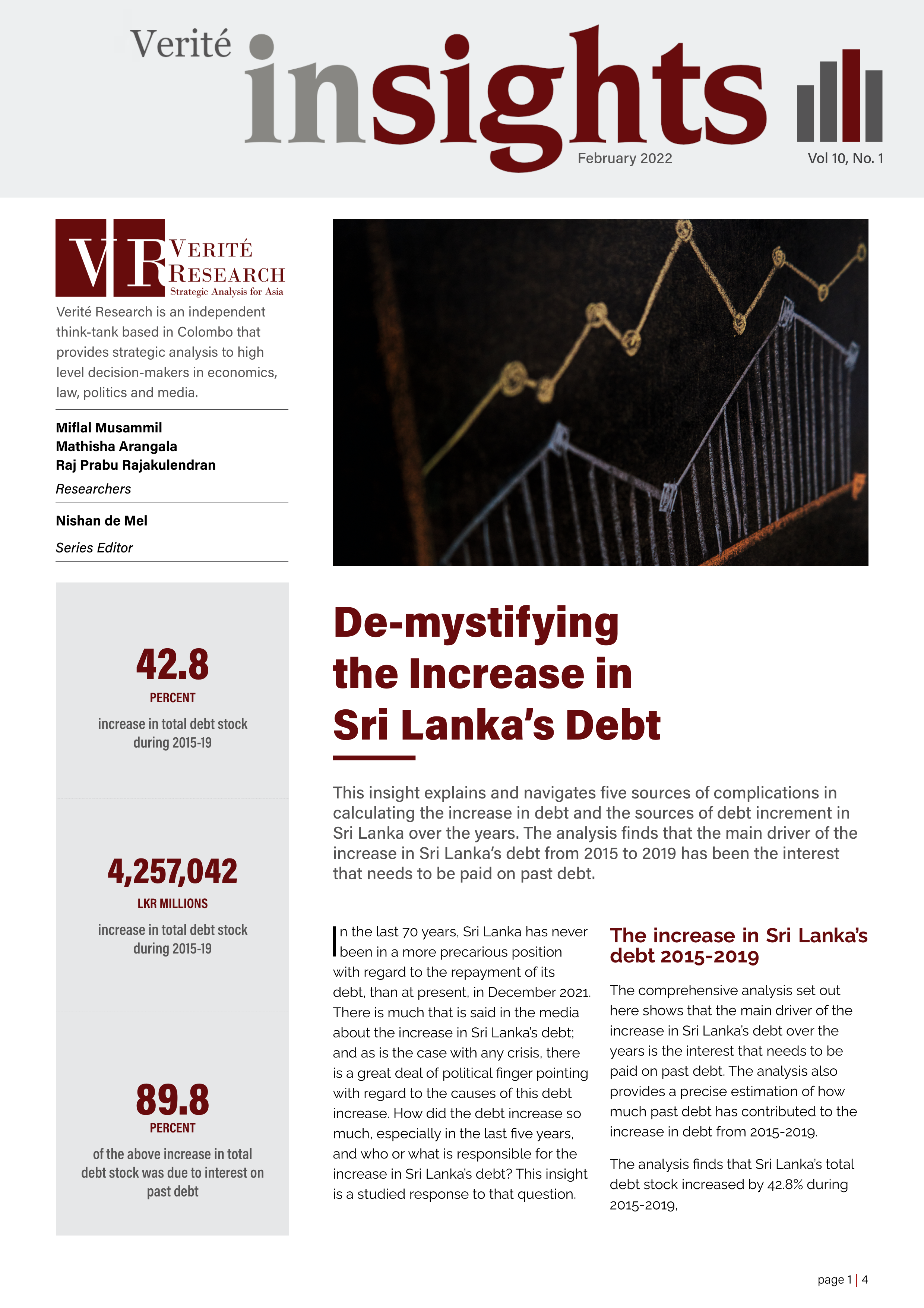Concerns about Sri Lanka losing GSP+ concessions resurfaced with the EU parliament passing a resolution on June 10th, 2021, calling the EU Commission and the European External Action Service (EEAS) to use GSP+ as leverage to push for the repeal or replacement of the Prevention of Terrorism Act (PTA). For Sri Lanka, a major area of concern is the impact of the above on apparel exports to the EU, a key beneficiary of the concessions. Apparel contributes the most to Sri Lanka’s export revenue, accounting for 40-45% of the country’s total exports and the EU is the second largest market for Sri Lankan apparel after the USA, making up 42% of Sri Lanka’s total apparel exports between 2015-2019.
2019 දී රජය විසින් දුම්වැටිවල බදු සහ මිල නියම කිරීම, දර්ශකයකට අනුව සකසන ලද සුත්රයක් මත පදනම්ව සිදු කිරීමේ ප්රතිපත්තියන් හඳුන්වාදෙනු ලැබිණි. එම ප්රතිපත්තිය ක්රියාත්මක කිරීමට අමතක වීමේ පිරිවැය ඉහළ ය: 2020 සිට 2023 දක්වා කාලය තුළ රුපියල් බිලියන 85ක අහිමි වූ අත්හරින ලද ආදායම එහි ප්රතිඵලය වන අතර 2023 දී තවත් බිලියන 45ක් එනිසා අහිමි වනු ඇත.
China was the leading provider of external finance to Sri Lanka for infrastructure development during 2010-2016 accounting for 37% of the total. Sri Lanka borrowed USD 5,895 million from China for infrastructure development during this period. More than half of these loans from China (53%) came through a special regulatory framework set up in 2010, enabling the government to entertain unsolicited proposals (USPs) for public funded infrastructure projects circumventing the normal competitive procurement process. This research paper analyses the design and the actual practice of this special regulatory framework. The analysis aims to assess the extent to which the design and the actual execution of the special framework facilitated the realisation of its intended objectives.
As Sri Lanka’s crisis continues, up to 50% or more of the population is likely to need state support, however current targeting through Samurdhi reaches just about a quarter of all households and only 40% of the poorest individuals. As such, this background note by the Verité Research Sri Lanka Economic Policy Group recommends household electricity use as a determinant of eligibility for welfare benefits.
This report highlights the failure of the Sri Lankan government in implementing gender responsive budgeting in Sri Lanka. The case of gender KPIs provides a detailed case study of how poor planning of government policies can lead to poor accountability among implementing agencies. The report highlights the importance of conducting good analysis, ensuring that well-defined frameworks and proper oversight mechanisms are in place before proceeding to implement budgetary policies.
இந்த அறிக்கை, இலங்கையில் பால்நிலை பொறுப்பு வரவுசெலவுத் திட்டத்தை நடைமுறைப்படுத்துவதில் இலங்கை அரசாங்கத்தின் தோல்வியை எடுத்துக்காட்டுகிறது.
This note by the Verité Research Sri Lanka Economic Policy Group estimates the additional revenue that can be collected from reinstating in Sri Lanka two methods of efficient tax collection that were discontinued in 2020. That is: the withholding tax (WHT) and the pay-as-you-earn (PAYE) methods of tax collection. Without any change in the current, reduced, tax rates, and a WHT of 10% the additional revenue that can be collected is estimated to be 0.70% of GDP (which is LKR 184.2 billion in 2023).
In 2019 the government introduced a policy where taxes and prices on cigarettes would be based on an indexation formula. Forgetting to implement the policy is costly: it has resulted in a foregone revenue of 85 billion from 2020-2022 and will cost a further 45 billion in 2023.
This study aims to address the knowledge gap on how ‘cost’ factors can affect the choice architecture for women entering or exiting the labour force by estimating the monetary and non-monetary costs of doing a job for urban women in Sri Lanka. Working-age women in the Western province that were categorized as either currently employed, previously employed, or never employed, were sampled through focus group discussions and a detailed survey questionnaire.
This insight explains and navigates five sources of complications in calculating the increase in debt and the sources of debt increment in Sri Lanka over the years.


